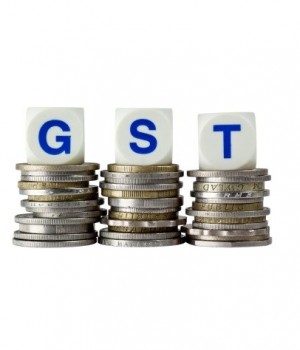Complying with Australia’s GST rules is costing small businesses big time – more than $13.7 billion a year, according to new research recently released by accounting software provider, MYOB.
Based on a survey of 1026 SME owners and managers, the research uncovered the true cost of the GST burden on the men and women running small businesses across the country.
The survey found that an SME spends an average of 84.1 hours a year to collect the tax on behalf of the Australian Government – this translates to more than two full working weeks a year (based on a standard 38 hour working week).
This equates to $6,778 a year for each of the estimated 2.02 million SMEs and non-employing business operating in Australia – or $13.7 billion a year across all SMEs.
The research also identified exactly whose shoulders the GST burden falls on in a business – of the 84.1 annual hours of work each business commits to the GST, 64 hours are by the owners and managers, time that should be spent on important business decisions.
MYOB CEO Tim Reed says the government needs to better understand the impact the GST has on the running of a small enterprise.
“If Australia is to have a debate on the GST then let’s start with the way it is collected and reported. Let’s look at ways to ease the cost and burden on SMEs.”
“The GST represents two full weeks where the owner’s attention is dragged away from the day to day running of their business,” Reed pointed out. “This is a significant drain on the productivity and profitability of our SMEs.”
“If the Government’s focus is on improving Australia’s productivity and reducing red-tape, then easing the burden of GST compliance should be a priority,” he stated.
Here is a possible solution to this GST burden
The survey found that the biggest problem for SMEs is the recording of information needed by the ATO, which takes 78.2 hours a year on average of the total 84.1 hours spent on GST.
SME operators currently need to assess each transaction on an invoice to determine whether GST applies or if the transaction is GST-free.
They then have to assign each of the GST-free transactions into one of eight possible categories, based on the Australian Taxation Office’s (ATO) GST-free codes.
Keep in mind that the need to determine and assign codes has nothing to do with the collection of GST revenue as it only relates to transactions that are GST-free. The GST-free codes are used by the ATO to benchmark industries for auditing.
Reed called on the Australian Government to make a simple and effective reform of the GST by abolishing the requirement to provide additional information on GST-free transactions.
“We need to simplify the GST so that small business operators need only determine if a transaction is one where GST applies or if it is GST-free,” he said.
“The need to allocate a GST-free code to each transaction results in uncertainty, confusion and compliance risk. It has nothing to do with the GST the company is required to pay.”
Reed further highlighted that this reform would bring Australia in line with neighbouring New Zealand where there is no requirement to report additional details about GST-free transactions, making it easier for small business to comply.
Australian businesses are spending twice as long on GST compliance than their peers over in New Zealand. A New Zealand SME needs 39 hours on average to comply with the GST each year, less than of the 84 hours that have to be devoted by Australian SMEs.






![Instagram for Business… in 12 steps [FREE INFOGRAPHIC]](https://anthillonline.com/wp-content/uploads/2015/08/Capture7-300x194.jpg)
![How to build a retail empire with James Webber [FREE REPORT]](https://anthillonline.com/wp-content/uploads/2015/06/james-webber-instagram-memes-01-100x75.jpg)
![Want more credibility and influence? Unlock the 12 principles of persuasion checklist [FREE DOWNLOAD]](https://anthillonline.com/wp-content/uploads/2016/03/james-persuasion-and-influence-nfsu-02.pdf-Box-2016-03-24-15-09-44-100x75.png)
![Strategic Alliances with Simone Novello [FREE INFOGRAPHIC]](https://anthillonline.com/wp-content/uploads/2015/08/Capture6-100x75.jpg)
![How to give good headlines, and create emails that get opened [CHEAT SHEET]](https://anthillonline.com/wp-content/uploads/2013/11/7-steps-cheatsheet-3d-cover-nuova--100x75.png)
![Four Page Digital Marketing Strategy [FREE RESOURCE]](https://anthillonline.com/wp-content/uploads/2015/01/FOUR-PAGE-IMAGE-100x75.png)
![When the power of technology and advertising work together for good, it can stop evil [VIDEO]](https://anthillonline.com/wp-content/uploads/2013/05/LenticularBillboard-300x350.jpg)

![Cardboard boxes – the best possible way to stimulate your imagination [VIDEO]](https://anthillonline.com/wp-content/uploads/2012/12/ImaginationsOnly-300x350.jpg)
![How to build the right culture in your startup [VIDEO]](https://anthillonline.com/wp-content/uploads/2014/12/companyculture-300x350.jpg)
![Three easy wins when using LinkedIn with David Hobson [FREE REPORT]](https://anthillonline.com/wp-content/uploads/2015/08/3quick-wins-300x194.png)
![Seven essential steps to a successful podcast with Loren Bartley [Cheat Sheet]](https://anthillonline.com/wp-content/uploads/2015/11/Screen-Shot-2015-11-26-at-11.21.58-100x75.png)
![Learn how to devise winning business ideas in four steps with Martin Martinez [CHEAT SHEET]](https://anthillonline.com/wp-content/uploads/2015/07/Screen-Shot-2015-11-26-at-13.44.27-100x75.png)
![The Ultimate Social Media Almanac with James Tuckerman [Cheat Sheet]](https://anthillonline.com/wp-content/uploads/2015/11/Screen-Shot-2015-11-26-at-11.24.55-100x75.png)
![Need cash for your startup or innovation? Here’s the Ultimate Grant Guide for Innovators and Startups [FREE DOWNLOAD]](https://anthillonline.com/wp-content/uploads/2015/10/INNOVATORS-GRANT-GUIDE-NFSU-page-spread-100x75.png)
![New Zealand’s Xero eyes US IPO, further disruption as subscribers increase [INFOGRAPHIC]](https://anthillonline.com/wp-content/uploads/2014/07/sruuuuujana-212x194.png)
![Ever wonder if your ‘content marketing’ is really just crap? You gotta see this! [INFOGRAPHIC]](https://anthillonline.com/wp-content/uploads/2014/08/content-100x75.jpg)
![7 Business Lessons From Game of Thrones [INFOGRAPHIC]](https://anthillonline.com/wp-content/uploads/2014/10/infographic-games-of-thrones-041-100x75.jpg)
![How to build your own Media Empire… In seven steps with Nathan Chan [INFOGRAPHIC]](https://anthillonline.com/wp-content/uploads/2014/10/Nathan-Chan-Infographic-e1413419529176-100x75.jpg)
![5 Business Lessons From Tinder [INFOGRAPHIC]](https://anthillonline.com/wp-content/uploads/2014/10/Tinder-Elegant-Infographic-100x75.jpg)



